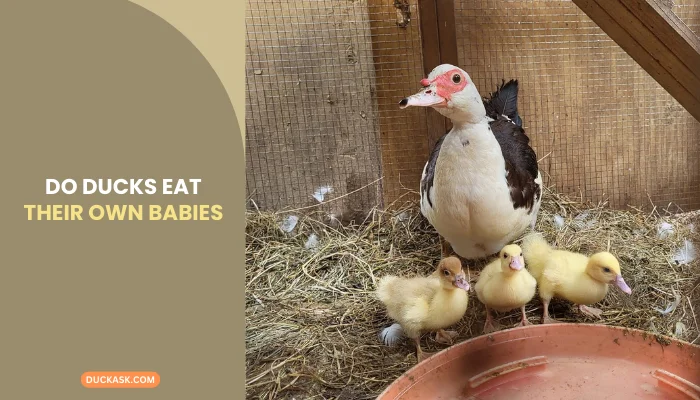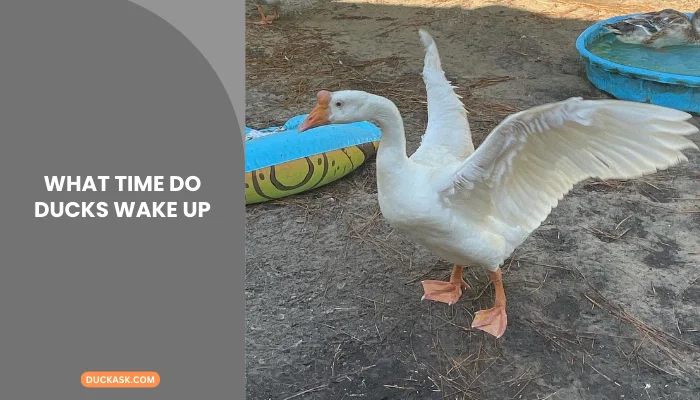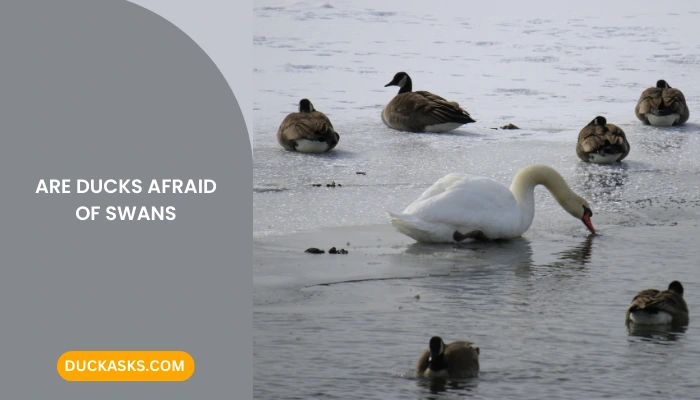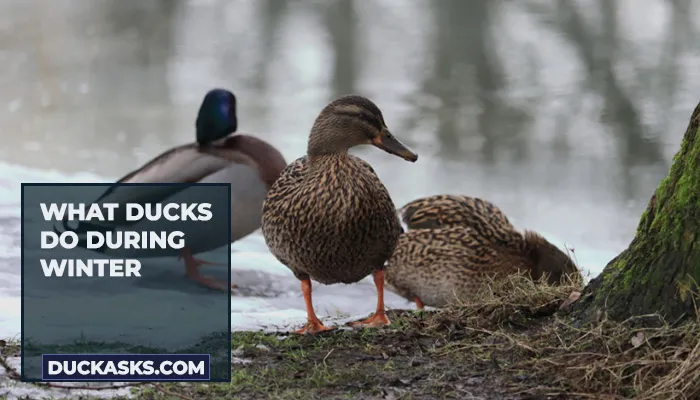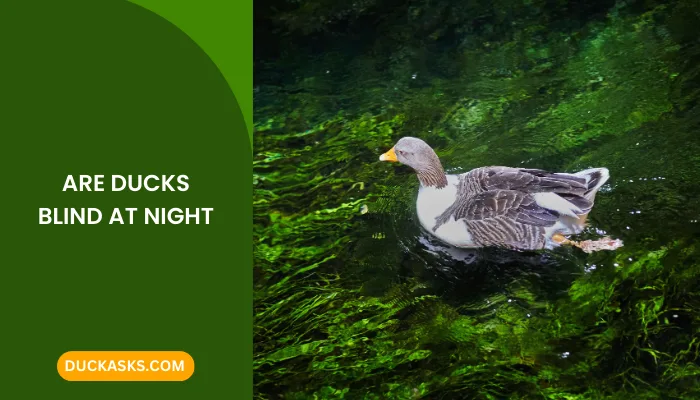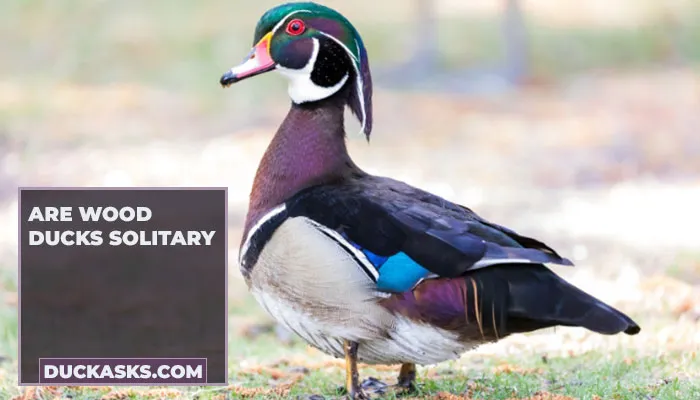What Does a Duck Need to Survive?
Ducks are one of the few species of animals that can be found all over the world, except for maybe Antarctica. They are waterfowls, part of the Anatidae family of birds, that are able to spend as much time swimming in water as walking on land.
These animals are always spotted near water bodies, such as ponds, lakes, and swamps but their nests are not as easy to be found. They seem to be very happy animals in general but don’t you sometimes wonder, what does a duck need to survive?
Ducks have evolved for hundreds of years to adapt their features in order to survive their lifestyles. From their webbed feet to their filter-feeding bills, their body parts have adjusted to their specific needs.
Read more to find out more about how ducks have adapted through the generations to adjust to their environment in this article!
Read more about duck habits:
What Kind of Habitat Do Ducks Need?
Ducks, as waterfowls, must be kept in wetlands in order to survive. Water is just as essential to them as land, if not more, and they need to have access to large bodies of water.
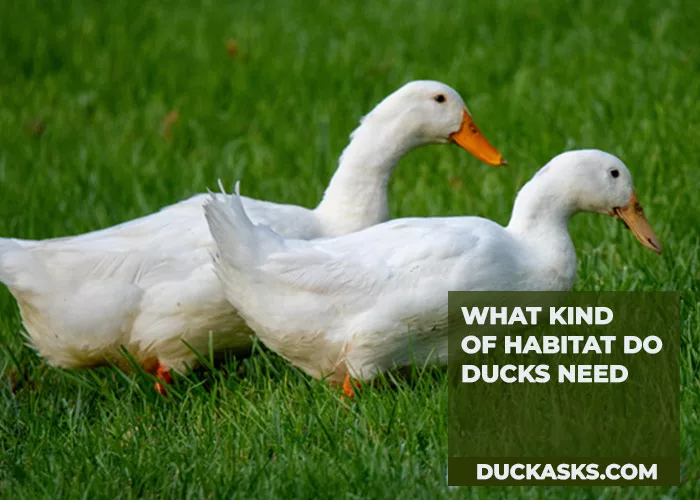
Additionally, the water body that the ducks swim in should be deep enough for the ducks to dive into. They hunt, feed, clean up and even mate in the water a majority of the time, so this is an absolutely essential part of their habitat.
Why Must Ducks Be Near Water?
While ducks are able to live both on land and water, they do still need access to both. In fact, the highest amount of time they can spend away from water is up to 8 hours a day at most.
01. Health and Cleanliness
Being able to submerge their heads under water keeps their nostrils and plumage clean, which is crucial for their health and for finding mates. They need to preen more often than you think, and without access to water, they will not be able to remove parasites, germs, and debris from their feathers.
02. Feather Care
Without water to preen more easily, the ducks’ glands can become clogged, leading to their feathers becoming dry and brittle. Swimming also helps them maintain their body temperature in areas with hot climates.
03. Stress Factors
If ducks are kept away for longer than their required duration, they become anxious, mentally distressed, and even physically ill. They begin to drink less, their bodies kicking into survival mode, and therefore start to become dehydrated.
What Features Do Ducks Have that Help Them Survive?
Ducks have some of the most unique features that make them stand out as a species, even amongst birds.
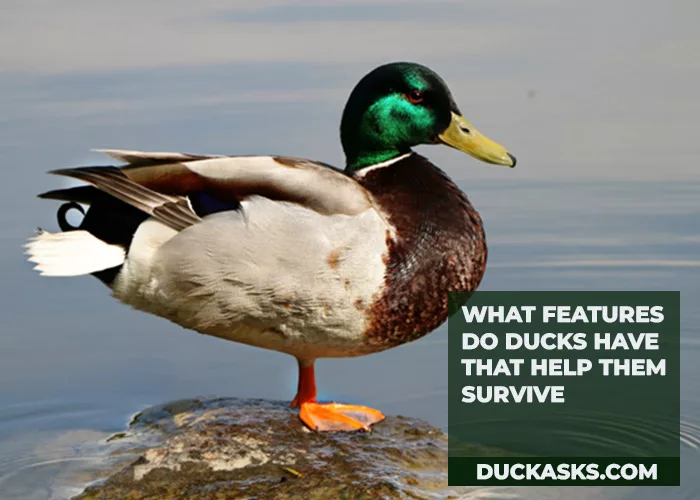
As waterfowls and omnivorous animals, their needs can be both specific and wide-ranging. Here are some of the ways their bodies have evolved to serve their needs.
01. Webbed Feet
Wild ducks spend around 90% of their time in the water, so they have webbed feet that assist them in swimming. The webbed feet are used to paddle across the ponds or lakes as the ducks float on the surface.
They are able to spread their toes, increasing the surface area, which in turn helps them push more water back to propel themselves forward. They can also move their toes closer together, now decreasing the surface area, therefore moving forward in the water with much less resistance.
02. Filter Feeders
Ducks have lamellae, better known as filter feeders. These are super fine bristle-like structures inside the bills of ducks, lining the perimeter. While they might seem terrifyingly like teeth, they really are not.
Lamellae act as filters for the ducks when they dive in to catch their prey in their bills. As the water pours out, the bristles keep all the food, such as insects, plants, and fishes, trapped inside.
These bristles are truly convenient for these waterfowls, creating almost a mesh to keep the smallest of objects safely in their mouths.
03. Waterproof Feathers
If you come across a lot of birds, you may have spotted them nibbling at their feathers. This act is known as preening, and they do this for several reasons. One of them is to spread the oil produced from their preen gland, located near their tails.
This oil makes their feathers waterproof and therefore keeps them warm even in cold water. This also means that the feathers absorb less water, keeping themselves light and, therefore, not weighing the duck down when they walk back on land.
Since they clearly spend the majority of their time swimming or floating, this is quite a useful adaptation for them.
How Do Ducks Survive Predators?
Ducks generally like to stay hidden within bushes and trees when they are on land so as not to be spotted by predators. To avoid hawks and eagles, they instinctively try to keep themselves under foliage or large, fallen trees.
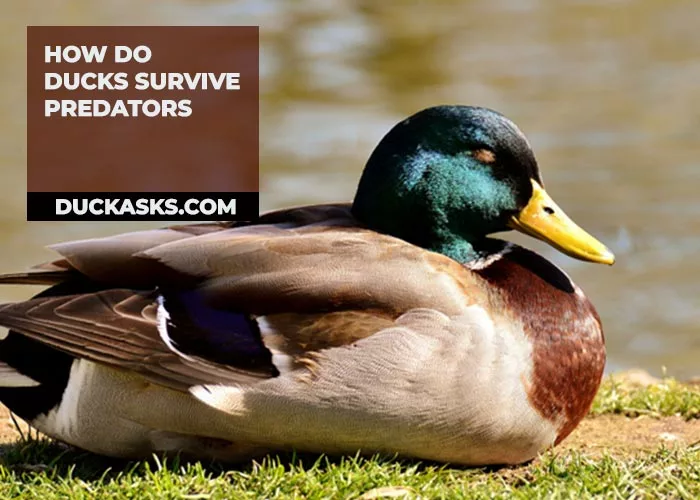
However, this is not all. They have a unique ability to protect themselves even when they are asleep.
They Literally Sleep With One Eye Open
“Sleeping with one eye open” may only be a proverb to us mere humans, but it is a reality for many birds, including ducks!
Ducks are nothing if not vigilant, so they actually have the skill of sleeping with one eye open to keep a lookout for any predator on the prowl.
It is not as simple as the eye, though.
They can actually keep half their brains awake while the other half is in slumber, meaning they do get a proper rest while never letting their guards down.
How Do Ducks Survive in the Winter?
Surviving through the winter or in generally cold climates is always a challenge for warm-blooded wild animals, but they keep surprising us with their unique adaptations!
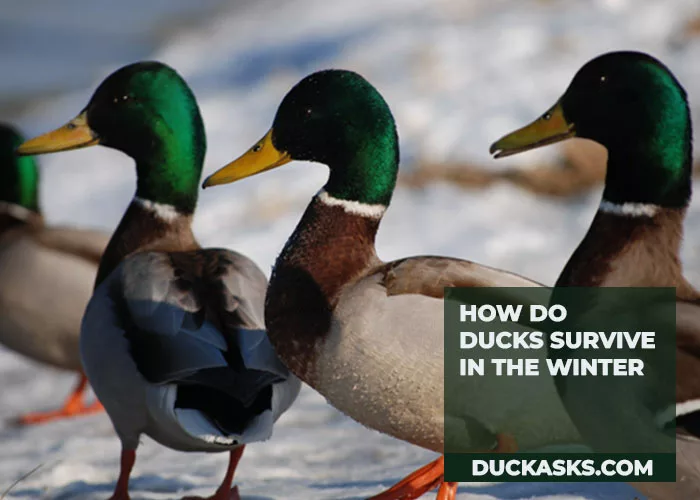
Ducks have evolved many such features and traits that keep them warm and help them adjust to the reduced number of prey in their habitats.
01. Trapping Heat
As we mentioned, ducks have preening glands that secrete oil to keep their feathers waterproofed.
This waterproofing, along with the added denseness of the feathers during cooler seasons, keeps body temperature high by trapping heat close to the skin.
02. Fat Reserves
Ducks have a huge appetite in general, but it grows even more right before the worst of the winter seasons.
They hoard and binge on food to preserve them in the form of fat in their bodies. This is then used up as energy during the coldest days to keep themselves warm.
03. Migration
Fat reserves can only help through brief winters, however, so for longer cold seasons, and ducks may actually have to migrate.
Persisting winters can mean a lack of food to forage for once the ducks run out of fat reserves, so flying to tropical countries with warmer climates is always an option for them.
How Do Ducks Swim During Winter?
Ducks can actually swim in freezing cold water without the fear of getting frostbite. This is because of their heat circulation, which runs in the counter-current direction to the blood flow.
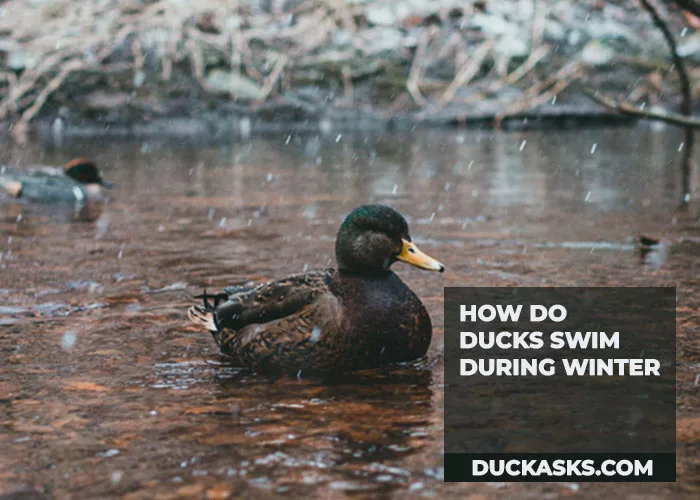
Counter Current Blood Circulation System
How the system works is like this; the veins and arteries run very close to each other inside ducks.
The veins carry the cold blood back from the freezing, webbed feet of the duck, and the arteries carry warm blood from the pumping heart throughout the body.
If the cold blood through the veins reaches the heart, the duck will suffer from hypothermia. However, on the way, as the vein crosses close to the warm blood in the artery, the heat transfers to the vein warming the blood.
In return, the blood in the artery also cools down as it passes by so that less heat is lost to the environment when it reaches the duck’s feet.
Conclusion
We now come to the end of the article on – what does a duck need to survive? Ducks are clearly some exciting animals to study. Despite their adorableness, they are obviously capable of looking after themselves and can outsmart their predators quite easily.
We hope that you enjoyed this article. If you would like to keep up with more articles on ducks and duck care, do not hesitate to follow us on Facebook, Twitter, and Pinterest.
Image Credits:
Article References

